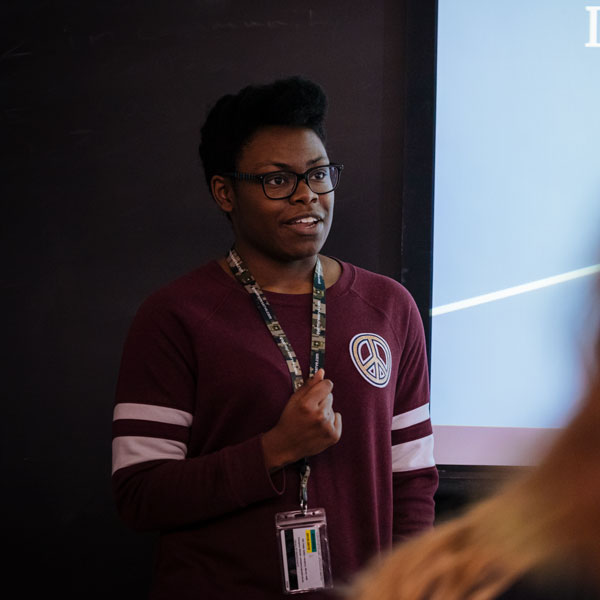This website uses cookies. Find out more in our Privacy Policy.
In this dual major, you'll study mathematics and its application in theoretical physics.
This interdisciplinary program is ideal if you're interested in pursuing a career or graduate studies in the STEM fields.
The math-physics major was created in collaboration with the math and physics departments at Agnes Scott. Students pursuing the dual degree programs in engineering and computer science take classes in physics and math and many choose to major in math-physics due to its flexibility and overlap with the dual-degree requirements.

In this major, you'll explore the productive interaction between these two subjects and develop skills in problem analysis and problem solving, both individually and collaboratively. You'll use technology wisely and make use of it as a tool and expression of mathematical ability. You'll also learn:
Both the math and physics departments regularly notify students of special research opportunities such as the National Science Foundation-sponsored research experiences for undergraduates (REU), and assist students in the placement process. In the past several years, Agnes Scott students have participated in REU programs at Miami University, Clemson University, Carleton College, and George Mason University. Our students have also contributed to research projects at the Center for Disease Control and Prevention, Emory University, Georgia Institute of Technology, Jet Propulsion Laboratory, University of Alaska Center for Atmospheric Research, and the University of Central Florida Laser Center.
The 110,000-square-foot Mary Brown Bullock Science Center, with 65,000 square feet of teaching and lab space, is home to the physics, biology, chemistry and psychology departments. The building features extensive, modern instrumentation, faculty-student research laboratories, independent student-project laboratories and long-term observation areas.
At Agnes Scott, learning happens outside the classroom too. Students have access to several on-campus organizations, including Scotties in Technology an organization dedicated to connecting students with ways to get more involved with technology; oSTEM (Out in STEM) an organization that aims to support LGBTQ+ students seeking degrees in STEM fields; Women Who Code and the Association for Women in Mathematics. You can also join the Society of Physics Students, which holds events and activities promoting physics to the campus and general public.
In this program, you'll develop problem-solving and critical-thinking skills in both the classroom and laboratory.
Students with this major are expected to solve fundamental problems of classical and modern physics using necessary mathematical skills. They must develop an approach to solving unknown problems using principles and tools learned in mechanics, thermodynamics, quantum physics, and optics. Many employers in industries like aerospace, software development, technology consulting and engineering hire math-physics undergraduate degree holders as technicians for their research laboratories.